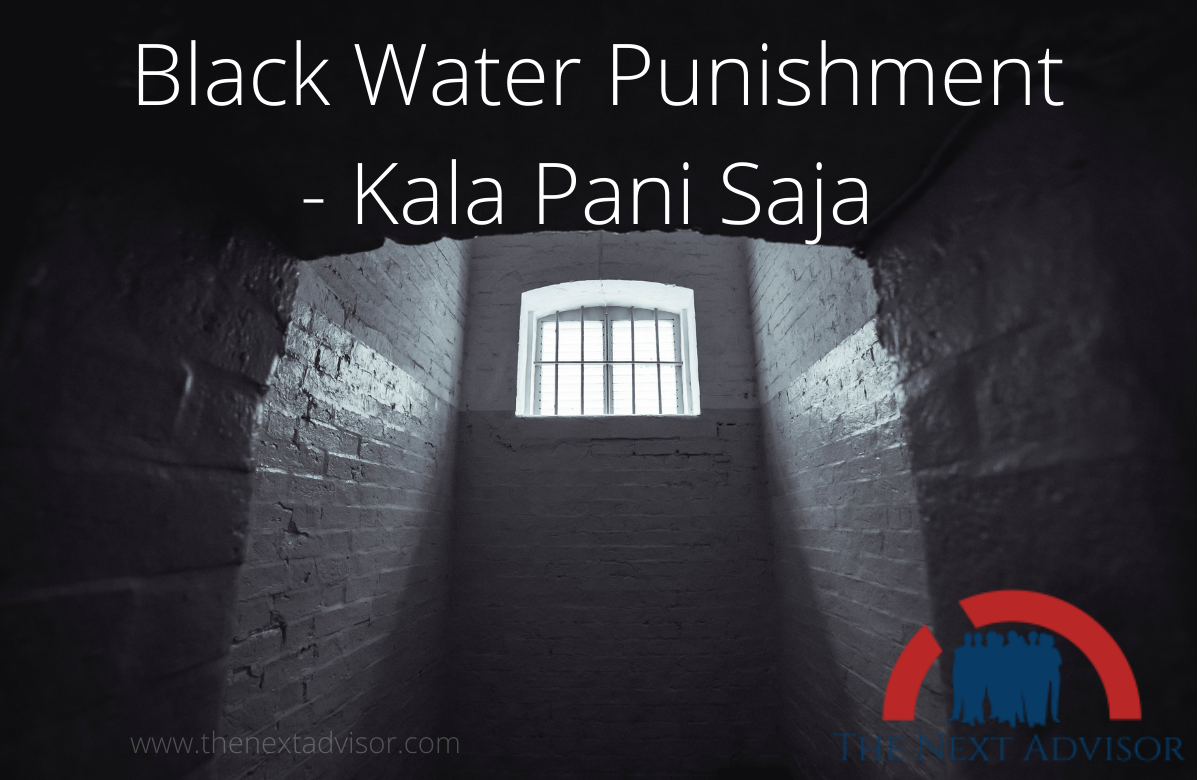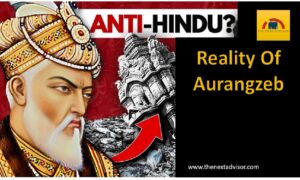Today we will know about punishment i. e. Kalapani (Black Water Punishment – Life Transportation), which section of the Indian Penal Code had a provision about black water and when this provision came and what would happen under this provision, you will know all this here.
If you go to Chapter 3 of the Indian Penal Code, the name of Chapter 3 of the Indian Penal Code is Punishment. If we go to section 3 of this chapter, then 6 types of punishment have been given in it. Sec 53 of the Indian Penal Code, 1860 prescribes 5 kinds of punishments.
-
Death Penalty. ( Mrutyu Dand. ) ( Hang till death ).
-
Life imprisonment.
-
Rigorous Imprisonment / Simple Imprisonment.
-
Fine. ( Arth Dand ) .
- Forfeiture of property.
-
Life Transportation. ( Ajeevan Karavas / Jail For Lifetime).
Life transportation or Jail for a lifetime was known in common parlance as punishment of Kala Pani. The jail for the Punishment of Kalapani (Black Water Punishment) or Kala Pani Punishment is called cellular prison. Cellular Prison was built in Port Blair, the capital of the Andaman and Nicobar Islands, and people were put in that jail for life. And any person who was sent there, it was said that that person has been punished, or it was said that that person has been punished with black water.
So the Cellular Jail is built in Port Blair, the capital of Andaman and Nicobar. The construction of this prison came to the mind of the British after 1857 because it was revolted in 1857, after which the British felt that such a prison should be built. So such a jail should be built where the punishment will shake the soul of the people.
The construction of the Cellular Jail started in 1896 and was completed in 1906. Those who were sent here with punishment have been punished with black water. It was called Black water Punishment – Life Transportation because this prison is located thousands of kilometers away from the land of India.
The place where this prison is built in Port Blair, the capital of Andaman and Nicobar, is still filled with water all around and when this jail was used for Punishment, even at that time there was water all around. This region comes under the Bay of Bengal region.
The study also shows that the British used this cellular Jail not only to keep Indians, but also the fighters of many other places like Burma, and the Freedom fighters of many others places were also imprisoned and brought here. The place was a favorite for the British officers as it was a secluded place.
And running away from here was not an easy thing for any prisoner. There was also a reason that neither anyone could come here nor could anyone go from here without the consent of the British. It was almost impossible for anyone to escape from here without the consent of the British.
The British used to bring prisoners here and make them do different types of work. You should also be aware that the 200 ( Two hundred ) rebels were first brought here under the supervision of British officer David Berry. David Berry was an insanely cruel jailer in Cellular Jail between 1909 and 1931. David Berry had been a nightmare for the prisoners.
When the freedom movement was at its peak in our country. At that time, the British had sentenced many people to Kala Pani, most of whom were prisoners are freedom fighters. The biggest name among them is Vinayak Damodar Savarkar. When he was in London, during his studies, he was accused of sending revolutionary books to India and of planning the murder of an English officer.
Vinayak Damoder Savarker was also sentenced and was sent to Kala Pani on 4 July 1911. Apart from Vinayak Damodar Savarkar, his elder brother Baburam Savarkar and Batukeshwar Dutt, Dr. Divan Singh, Yogendra Shukla, Maulana Ahmadullah, Maulvi Abdul Rahim Sadiqpuri, Bhai Parmanand, Maulana Fazal-e Haq Khairabadi, Shadan Chandra Chatterjee, Sohan Singh, Vaman Rao Joshi, Nand Gopal, Mahavir Singh, etc. had to bear the brunt of ‘Kalapani’…
You should know that after the independence of India this punishment was abolished by an amendment in IPC and now there is no punishment like Black Water Punishment – life transportation ( Ajeevan Kara was ) or life election in IPC. And after this amendment of IPC, the black water punishment – life transportation, was completely abolished. But still, it is a nightmare for the Indians.

























